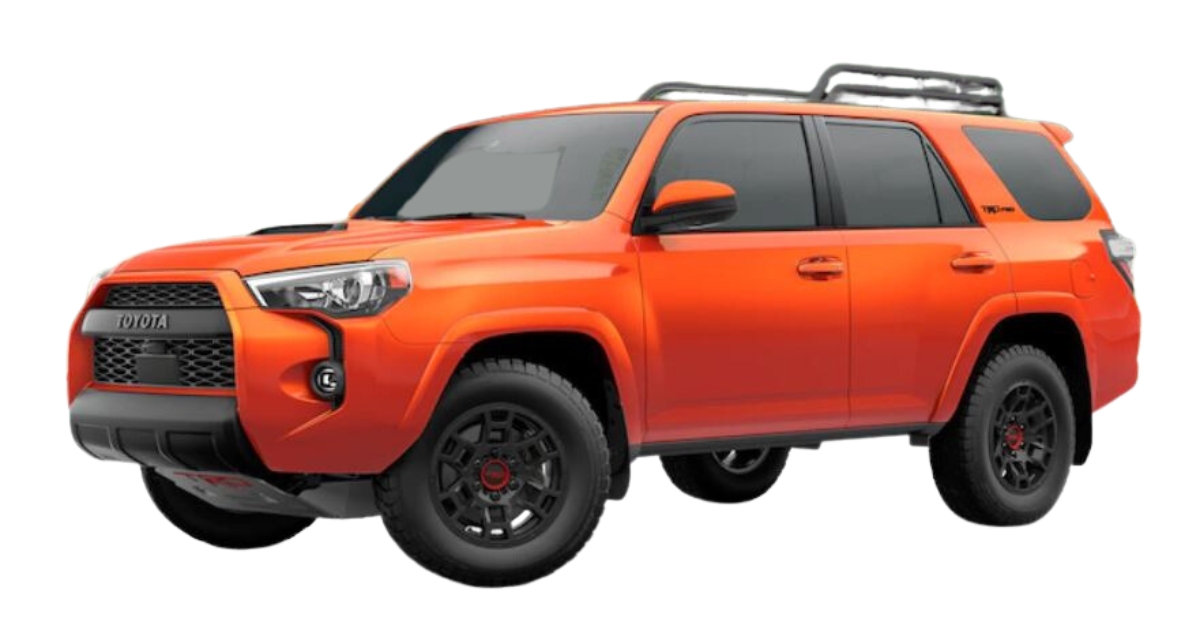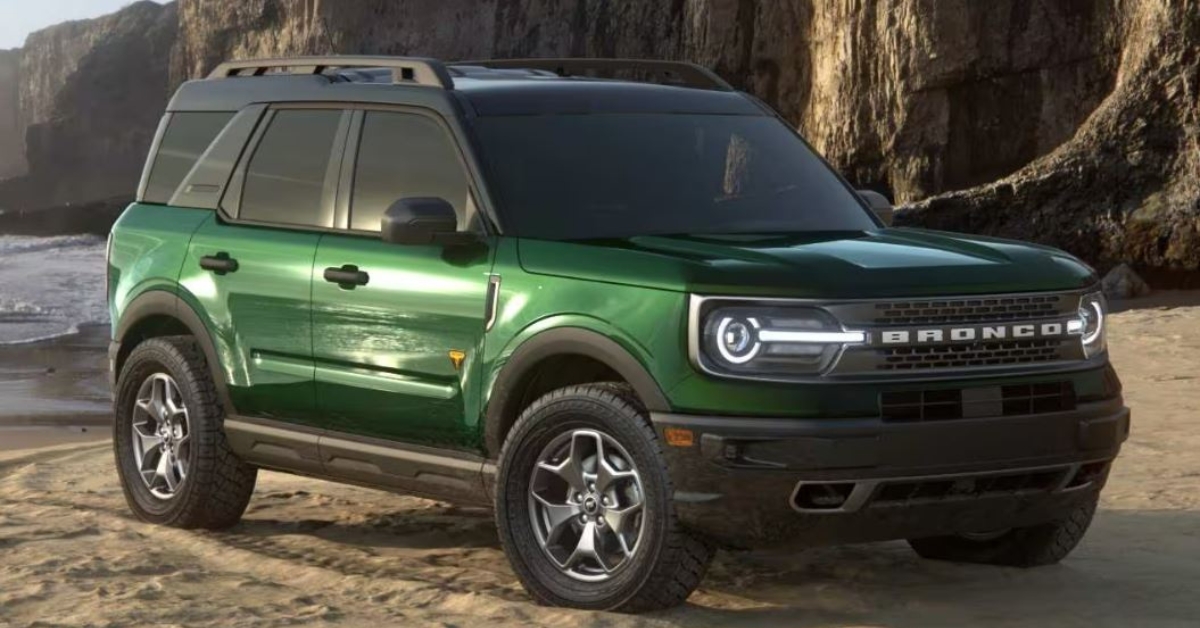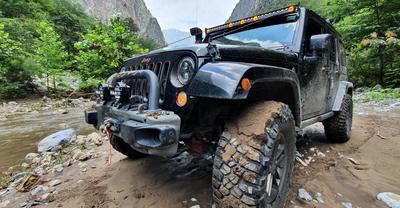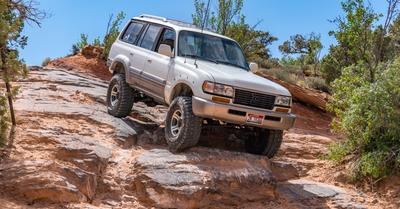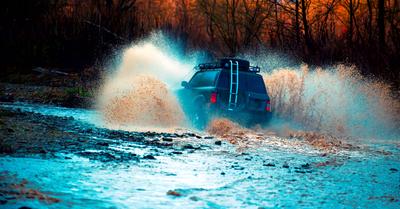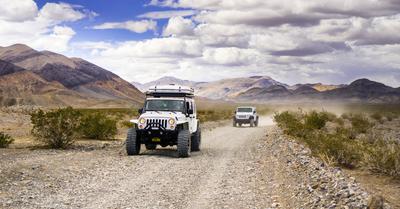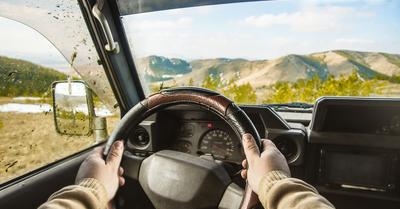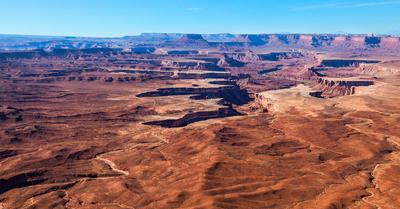Are you looking for an overland SUV that handles with precision while remaining durable on long journeys? Then you’ll need to find the perfect vehicle.
The best overland SUVs should be durable, built with off-road tires, and provide plenty of cargo space. We found these six vehicles to be the best options.
- Toyota Land Cruiser
- Jeep Wrangler
- Toyota 4Runner
- Land Rover Defender
- Ford Bronco Sport
- Toyota FJ Cruiser
This review will guide you through the six best overland SUVs that excel in performance, durability, and comfort, perfect for your next epic expedition. So buckle up as we delve into the world of robust SUVs designed to tackle the unknown and offer you the freedom to explore the great outdoors like never before.
Key Takeaways
- Overlanding SUVs should have robust off-road capabilities, ample storage, and comfortable interiors such as Toyota Land Cruiser and Jeep Wrangler for extended travel.
- Certain features to look for in overland SUVs include off-road performance, storage space, comfort, durability, and reliable off-roading tires.
- While not mandatory, a 4x4 SUV is highly recommended for overlanding due to its improved off-road performance and versatility.
This article may contain affiliate links where we earn a commission from qualifying purchases.
6 Best Overland SUVs for Adventure Seekers
Overlanding involves taking your vehicle off the beaten path and embarking on multi-day journeys, exploring remote locations, and experiencing the thrill of the unknown. Overlanding vehicles should have solid handling, cargo capacity, and off-road performance.
Overland trips can range from weekend getaways to epic cross-country expeditions lasting several months. SUVs offer a combination of off-road capability, ample storage space, and essential comfort for long trips.
Their rugged construction and four-wheel-drive systems allow them to tackle challenging terrains with ease, while their spacious cabins provide comfort and livability during extended journeys. Here are the six best vehicles we recommend.
1. Toyota Land Cruiser
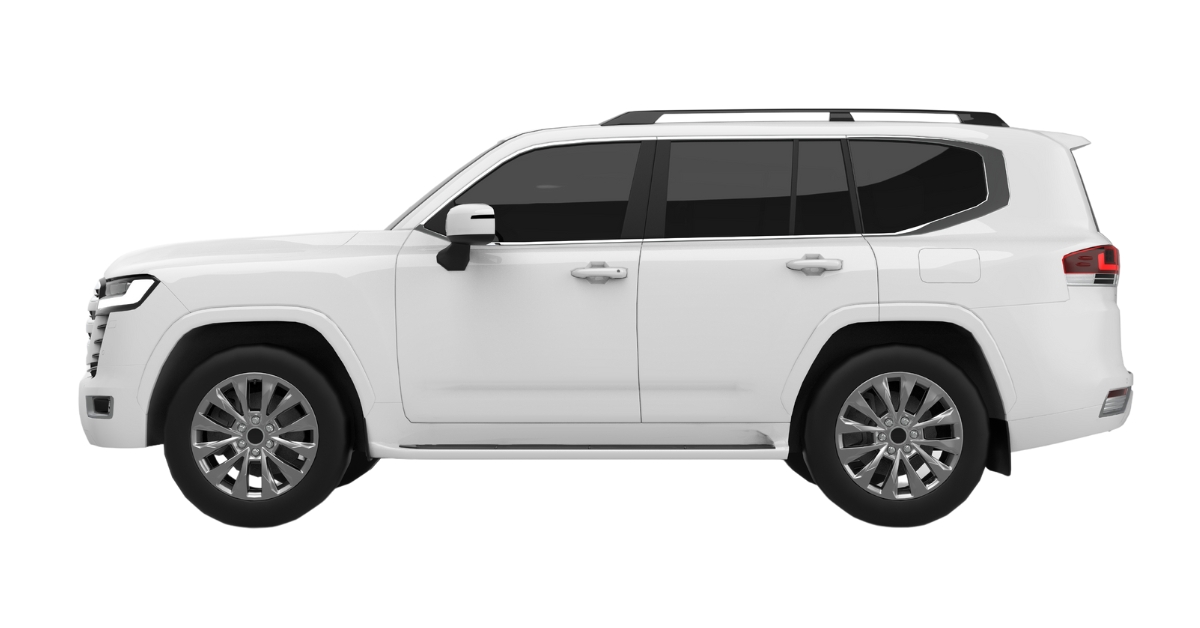
Toyota Land Cruiser
The Toyota Land Cruiser is a rugged and robust vehicle built to conquer any terrain. With its powerful engine and advanced suspension system, this SUV can handle even the most demanding off-road challenges. It’s one of the best overland vehicles we’ve found.
Equipped with all-terrain tires and a high ground clearance, it can easily navigate through rocky trails, muddy paths, and sandy dunes. When it comes to interior comfort, the Land Cruiser does not disappoint.
It offers spacious seating for the driver and passengers, ensuring a comfortable journey even on long trips. The cabin is designed with high-quality materials and ample storage space for all your gear and equipment.
In terms of safety features, it is equipped with advanced technologies such as blind-spot monitoring, lane departure warning, and adaptive cruise control. These features provide an extra layer of protection and help you stay safe on your overland adventures.
Pros
- Exceptional off-road capabilities
- High reliability and durability
- Luxurious and spacious interior
Cons
- Lower fuel efficiency
2. Jeep Wrangler
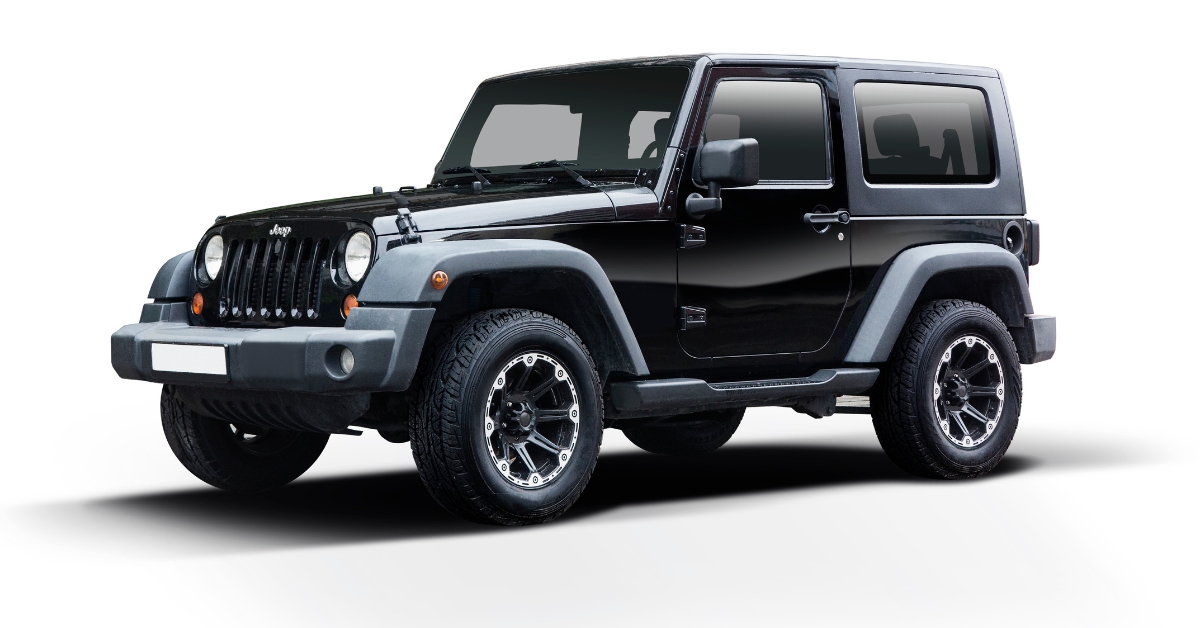
Jeep Wrangler
The Jeep Wrangler is an iconic figure in the world of overlanding. Its rugged construction, powerful engine options, and exceptional 4WD systems make it a strong performer in all kinds of off-road situations.
It boasts a high ground clearance and unique approach, departure, and break-over angles for tackling steep and uneven terrains. It can be outfitted with various models and customization options to cater to different needs and budgets.
With its powerful engine, hill descent control, and four-wheel drive system, it can easily tackle any off-road challenge. Whether you're traversing through muddy terrains or climbing steep hills, this SUV will get you there without breaking a sweat.
Plus, it offers ample cargo space, allowing you to bring all your camping gear, outdoor equipment, and supplies for an extended overland trip. Additionally, it comes with a roof rack and aftermarket support, making it easy to attach a rooftop tent or additional storage containers.
One of the Wrangler's most endearing features is its modularity. You can remove the doors and roof, fold down the windshield, and make other modifications to personalize the vehicle.
Pros
- Exceptional off-road capability
- Highly customizable
- Durable and reliable
Cons
- Can be less comfortable for long highway drives
3. Toyota 4Runner
Toyota 4Runner
The Toyota 4Runner is a blend of traditional SUV toughness and modern comfort. It's renowned for its reliability and durability, often praised for its high-mileage lifespan and off-road abilities.
A body-on-frame construction, ground clearance, and strong V6 engine make it a formidable off-road vehicle. While it might not be as plush as other SUVs in the market, it offers ample interior space and practicality, making it a good choice for long expeditions.
With its advanced four-wheel drive system and off-road suspension, it can conquer any obstacle. Whether navigating through rocky trails, crossing rivers, or driving through snow, this SUV will provide a smooth, crawl control and stable ride.
The seats are designed with comfort in mind, ensuring a pleasant journey even on long drives. The interior also has modern amenities such as climate control, a navigation system, and a rear-view camera, making your overland adventures more convenient and enjoyable.
Pros
- Exceptional reliability and durability
- Good off-road performance
- Ample cargo space
Cons
- Outdated interior design
4. Land Rover Defender
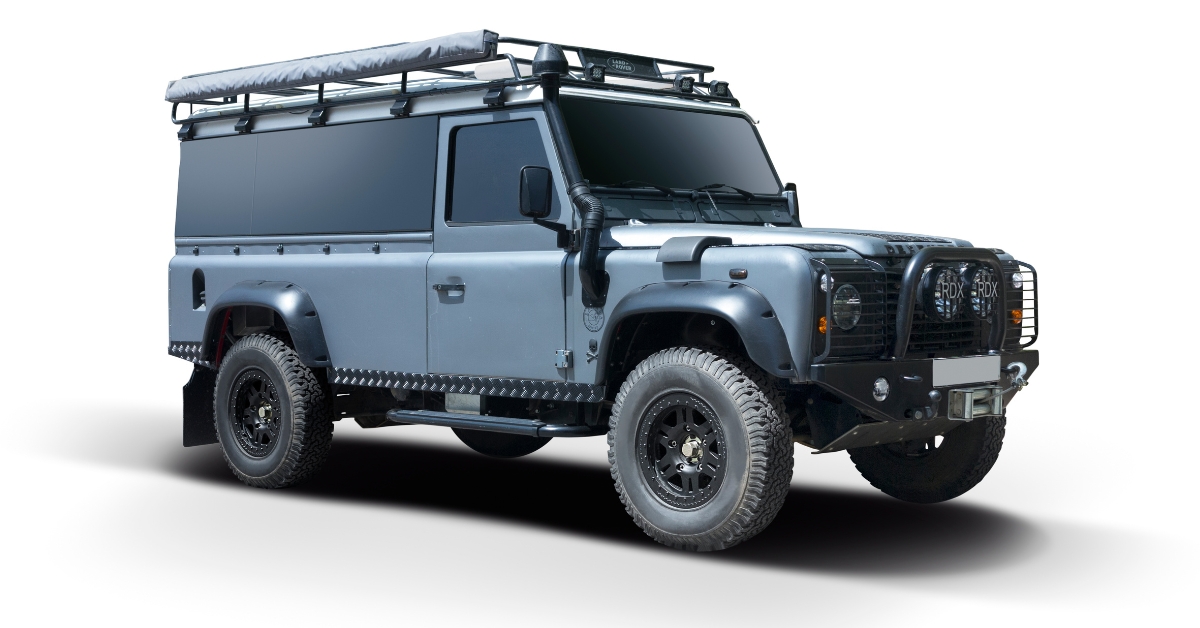
Land Rover Defender
The Land Rover Defender is an iconic off-road vehicle that has won adventurers' hearts worldwide. Following its recent revival, the new Defender maintains the rugged appeal of its predecessor while also incorporating modern technology, comfort, and design.
It's equipped with permanent four-wheel drive, a two-speed transfer case, and a locking center differential. Additionally, it features Land Rover's Terrain Response system, which adjusts various vehicle settings to suit different off-road conditions.
Higher-end models also include a rear differential lock and a Configurable Terrain Response system that allows more advanced drivers to fine-tune the vehicle's off-road settings.
Under the hood, the Defender offers multiple powertrain options, including four-cylinder, six-cylinder, and even a V8, each providing robust performance. This vehicle's towing capacity is also noteworthy, with the ability to tow significant loads, a bonus for overlanders who might have heavy equipment.
Pros
- Excellent off-road and on-road performance
- Luxurious and comfortable interior
- Advanced tech features
Cons
- Higher initial cost and maintenance cost
5. Ford Bronco Sport
Ford Bronco Sport
If you prefer a newer vehicle for your overlanding adventures, the Ford Bronco Sport could be the answer. It is a smaller and more affordable version of the reborn Bronco and other Ford Motor Company trucks like the Ford Ranger.
It comes with various off-road-oriented features like a 4x4 system, ground clearance, and multiple G.O.A.T modes (Goes Over Any Type of Terrain) for different terrains. Its interior is thoughtfully designed with durable materials and clever storage options.
Its higher ground clearance and short overhangs aid in its off-road capability, allowing it to easily tackle steep inclines and rocky terrains. The top trims come equipped with an advanced 4x4 system that includes a twin-clutch rear-drive unit with a differential lock feature to allow greater off-road performance.
Under the hood, the Bronco Sport offers two engine options: a base-level 1.5-liter turbocharged three-cylinder and a more potent 2.0-liter turbocharged four-cylinder for those seeking additional power.
However, its size could be a limiting factor for those planning extended trips. The SUV's design harks back to the boxy looks of the original Bronco, giving it a distinctive presence on the road.
Pros
- Capable off-roader with multiple terrain modes
- Affordable and well-equipped
- Rugged yet comfortable interior
Cons
- Not as powerful as larger rivals
6. Toyota FJ Cruiser
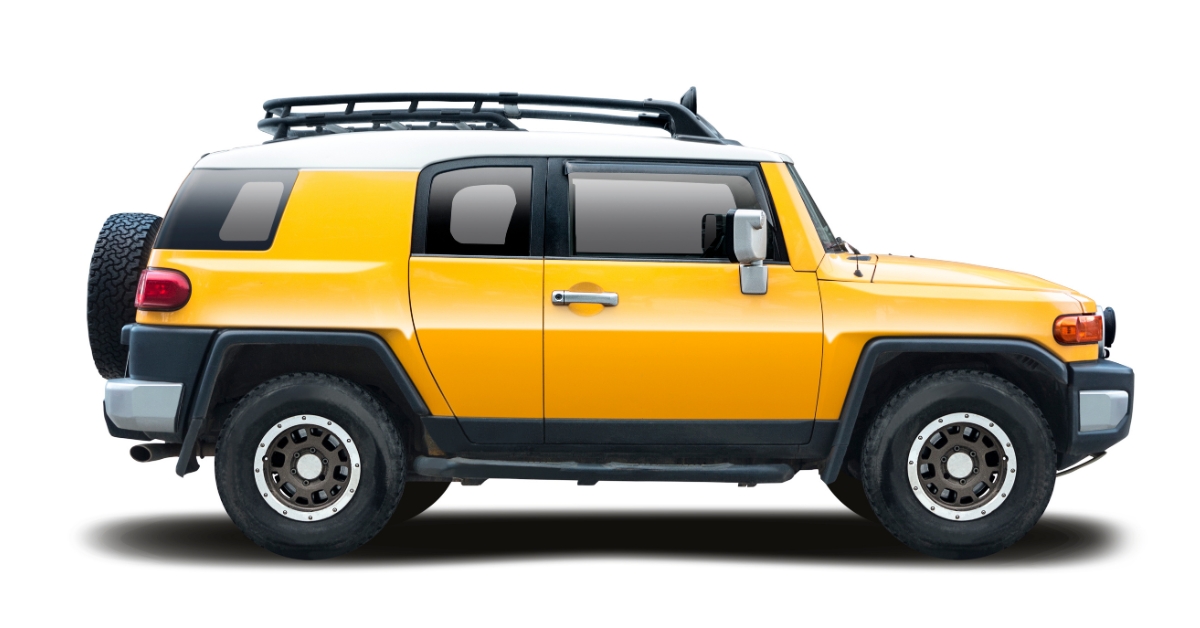
Toyota FJ Cruiser
The FJ Cruiser is Toyota's retro-styled, off-road-focused SUV. Although it was discontinued, its popularity remains among the overlanding community. It boasts a strong V6 engine, good ground clearance, and a sturdy body-on-frame construction.
Its unique design might be polarizing for some, and the interior isn't the most luxurious, but if it's capability you're after, the FJ Cruiser is a solid choice. Plus, it handles with above average precision.
The interior is also equipped with modern features such as a touchscreen infotainment system, Apple CarPlay/Android Auto compatibility, and a rear-view camera, keeping you entertained and connected during your overland adventures.
These features provide an extra layer of protection and help prevent accidents, giving you peace of mind on your overland journeys.
Pros
- Strong off-road performance
- Durable and reliable
- Unique styling
Cons
- Fuel economy is not great
Why Choose an SUV for Overlanding?
While any vehicle can be used for overlanding, SUVs are particularly well-suited for this type of adventure. SUVs offer a combination of off-road capability, ample storage space, and comfort that is essential for long trips.
Their rugged construction and four-wheel-drive systems allow them to tackle challenging terrains with ease, while their spacious cabins provide comfort and livability during extended journeys.
When you're out in the wilderness, having a reliable vehicle is crucial. SUVs are built to withstand the rigors of off-road travel, with reinforced frames, skid plates, and high ground clearance.
Comfort is another important factor to consider when choosing a vehicle for overlanding. SUVs offer spacious interiors, comfortable seating, and advanced technology features that enhance the overall driving experience.
Key Features to Look for in an Overland SUV
Not every car or truck can qualify as a reliable overland vehicle. So instead, narrowing down your choices based on a few key features is the best way to avoid unexpected accidents, vehicle damages, etc. on your journey.
Off-Road Capability
Off-road capability is perhaps the most critical factor to consider when choosing an overland SUV. Look for vehicles with robust four-wheel-drive systems, high ground clearance, and advanced traction control systems.
Additional features such as locking differentials, skid plates, and off-road tires can further enhance the vehicle's off-road performance. An overland SUV with exceptional off-road capability will provide you with the confidence to take on any adventure.
Storage and Cargo Space
One of the essential requirements for overlanding is ample storage and cargo space. Look for SUVs with spacious interiors, foldable rear seats, and versatile cargo configurations.
Roof racks and cargo boxes can also be useful in increasing the vehicle's storage capacity. Added storage in the form of a truck bed is not possible for SUVs, so increasing towing capacity and cargo racks is the best solution.
Comfort and Livability
Overlanding often involves spending extended periods of time inside your vehicle. Therefore, comfort and livability are crucial factors to consider. Look for SUVs with comfortable seating, supportive suspension, and a quiet cabin.
Features such as climate control, entertainment systems, and connectivity options can also enhance the overall comfort and enjoyment of your journey.
Durability
Durability should be a primary feature to consider. There are various ways to gauge how durable an SUV is and whether it is a suitable overland SUV. Look for these components.
- Reinforced Chassis: A sturdy and reinforced chassis helps the SUV withstand off-road shocks and stresses.
- Skid Plates: These are metal or plastic plates attached underneath the vehicle to protect essential components like the engine and fuel tank from rocks and rough terrain.
- Rust and Corrosion Resistance: Features such as rust-resistant body panels and undercoating can help protect the vehicle from corrosion, especially important in wet, muddy, or salty environments.
- Reliability: Choose a vehicle known for its dependability and longevity. Check out reliability ratings from sources like Consumer Reports or J.D. Power.
Tire Tread Life
Lastly, you need dedicated off-roading tires for overlanding adventures. They should be durable, robust, and provide excellent traction levels for rugged terrain. This includes:
- Off-road Tires: Look for SUVs with off-road capable tires. These have deeper tread patterns for better grip on rough and slippery surfaces.
- Long-Lasting Tires: Tires designed for longer tread life are ideal for overlanding as they reduce the need for frequent replacements. This could be especially useful on long, remote trips.
- Spare Tire: Ensure that the SUV has a full-size spare tire and the necessary tools for changing it. Flat tires are a common occurrence during overlanding.
How Long Do Overland SUVs Last?
The lifespan of an Overland SUV depends on a variety of factors including the make and model of the vehicle, how it's used, how well it's maintained, and the conditions it's exposed to. Generally, well-built and well-maintained SUVs can easily last over 200,000 miles.
Some models, like the Toyota Land Cruiser and 4Runner, have a reputation for longevity, with many owners reporting that their vehicles have surpassed 300,000 miles and are still running strong.
Jeep Wranglers and Land Rover Defenders are also known for their durability and long life, although they may require more maintenance and repair than some other models due to their more complex systems and heavy-duty usage.
It's worth noting that Overland SUVs used frequently for off-roading or in harsh conditions may require more frequent maintenance and may experience more wear and tear than those used primarily on-road.
Maintaining your vehicle properly — including regular oil changes, timely replacement of wear-and-tear parts like brakes and tires, and proper attention to any mechanical issues that arise — can significantly extend the lifespan of an SUV.
Finally, always consult your vehicle's owner's manual for specific information about maintenance schedules and practices to keep your SUV in top shape for the longest possible time.
Do You Need a 4x4 SUV For Overlanding?
While it's not absolutely necessary to have a 4x4 SUV for overlanding, it's highly recommended. A 4x4 vehicle offers significant advantages in terms of off-road capability, which is often crucial for overlanding.
The key advantage of a 4x4 is its ability to send power to all four wheels simultaneously, providing improved traction. This is particularly useful when traveling off-road in challenging conditions such as mud, sand, gravel, or rocky terrain.
Additionally, many 4x4 vehicles are designed with higher ground clearance and robust suspension systems to handle rough terrains and obstacles that you might encounter during overlanding.
However, if your overlanding adventures are mostly going to take place on well-maintained dirt or gravel roads and not venture into extreme off-road situations, a 4x2 vehicle with good ground clearance might serve your needs.
That said, for the versatility to handle a wide range of terrains and for the peace of mind when venturing into remote areas, a 4x4 SUV is generally the best choice for overlanding.


